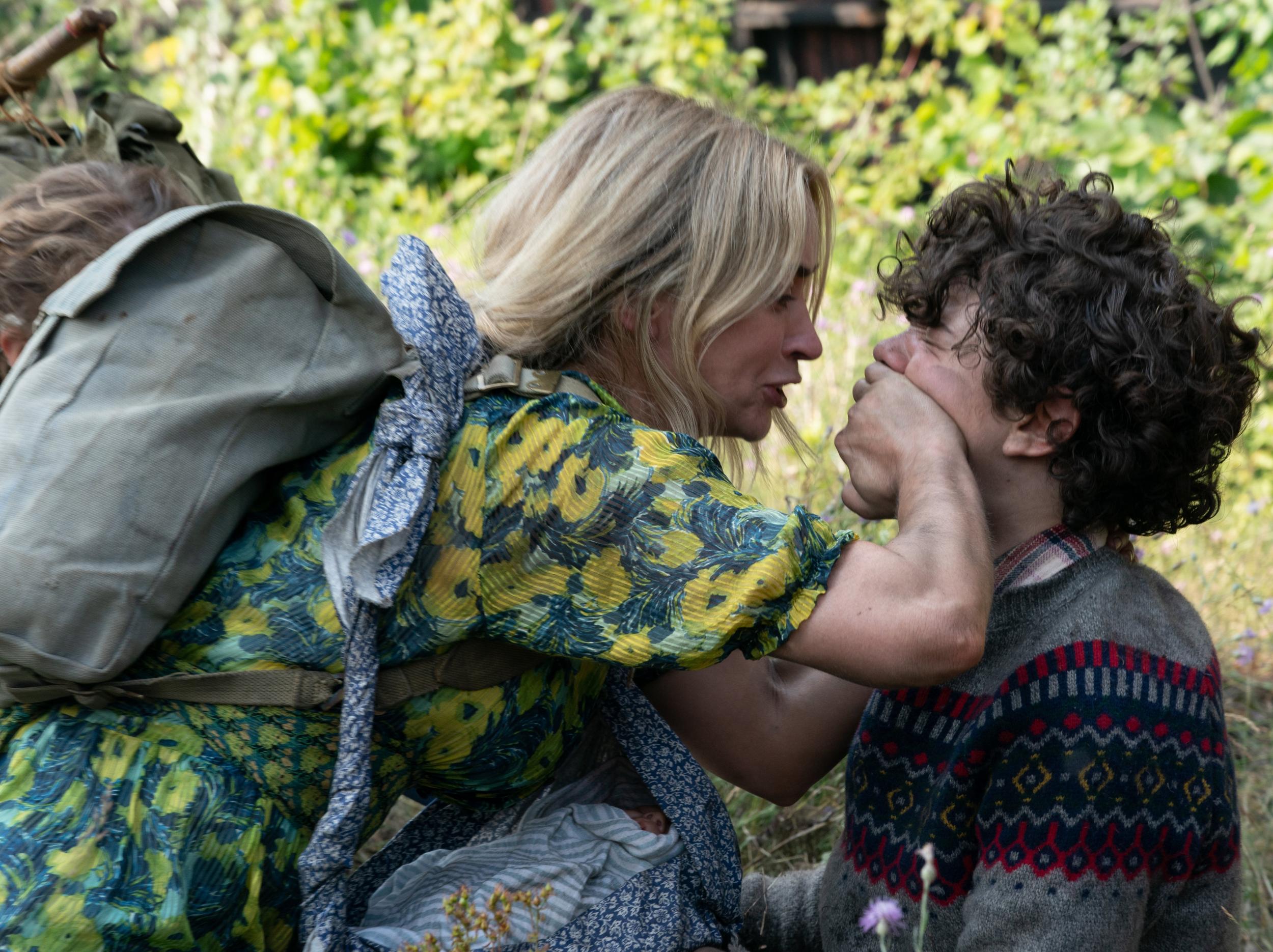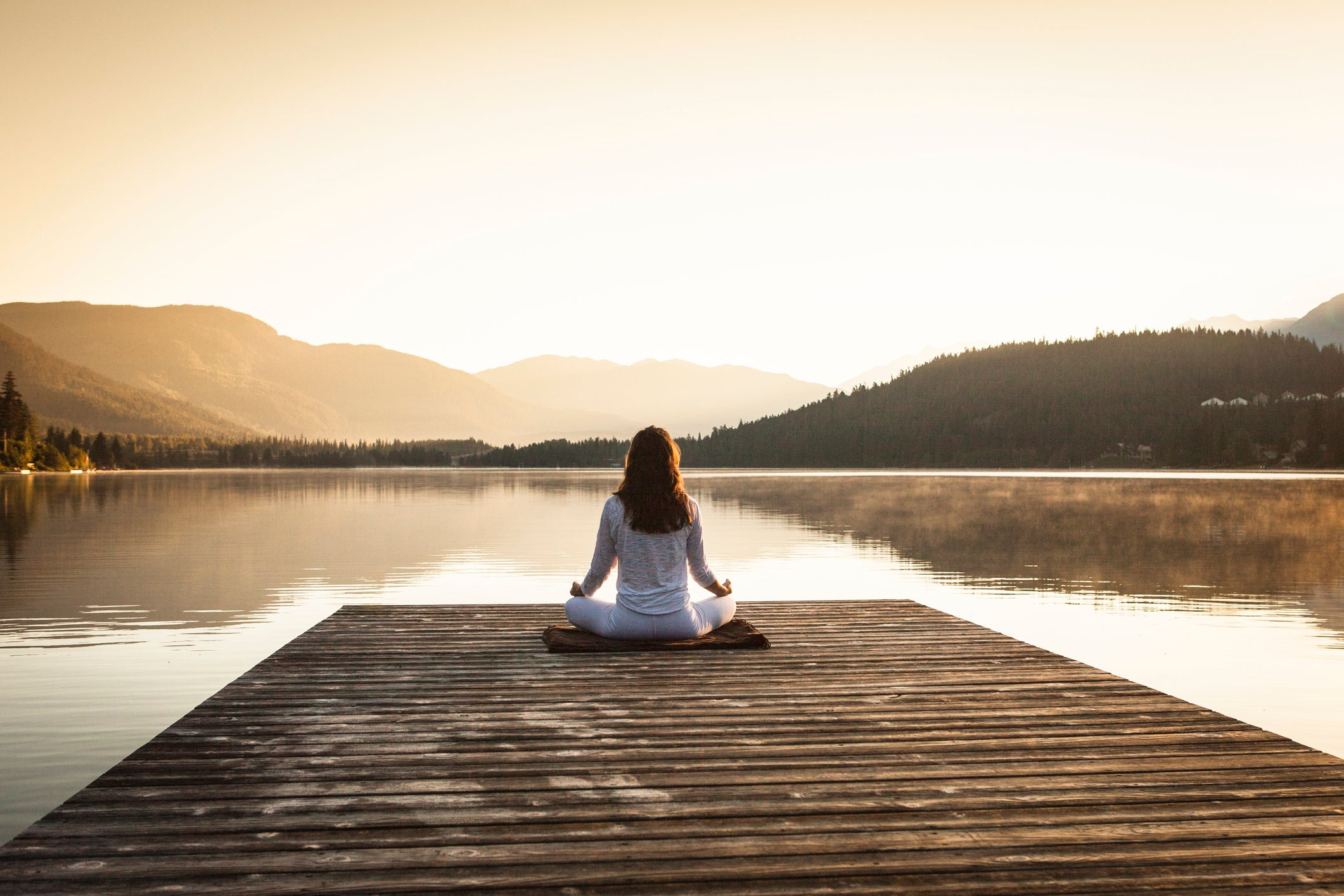What happened when I took myself on a silent retreat
In an age of constant digital noise, there’s little more countercultural than intentionally stepping into quiet spaces. But the ancient practice of silence and solitude is as relevant as it’s ever been, argues Helen Coffey, who takes herself off on retreat whenever the world gets too loud


A Quiet Place is one of the biggest horror franchises of all time. But sometimes I wonder if the films – based on the premise that humans are sharing the planet with deadly predators who can’t see, but have acute hearing that picks up on the slightest sound – aren’t just terrifying for their nightmarish monsters. Perhaps the real primal fear, in 2024, lies in the idea of having to endure silence for a prolonged period of time.
We have become so wary of the practice, so unaccustomed to it, that when I tell friends I’m using some annual leave to go on a silent retreat, the reactions range from confusion to awe to abject terror. In fact, the most common response is something along the lines of, “Wow, that sounds amazing! I wish I could do that.”
“Well, you can,” I’d reply encouragingly. But they’d smile nervously, ruefully shaking their heads; “Oh no, not me. I’d find it too difficult. All that time alone with your thoughts…”
I’m not sure exactly when we became so frightened of what’s in our own heads, hearts, souls – however you want to describe it. But the rampant rise of social media and what I call the “distractification industry” has, I believe, exacerbated our propensity to avoid engaging in any kind of introspection to an alarming degree. According to one 2024 survey, almost half of teenagers feel addicted to social media, while another study found that more than a third (34 per cent) of young people feel “trapped” by it. The digital noise in which we now all swim is unrelenting; upon waking, the first thing most people I know do (myself included) is reach for their phone. We scroll, we like, we consume constantly.
It’s consequently more important than ever to give our oversaturated brains space and quiet in which to breathe, pause and process. And yet the precise reason we need to disconnect so badly has transformed the idea of doing so into a source of visceral dread.
I feel lucky that, as a Christian, I’ve built the practice of silence and solitude into my life over the past 15 years or so. It’s not on a schedule or anything, but a couple of times a year something in me will snap, suddenly clamouring in desperation that I need to GET OUT, take myself away and switch off all the unending chatter. But I’ve noticed it getting harder, not easier, over the years; I’ve noticed the way that my device has stealthily taken over my entire life and messed with my brain chemistry in ways I still don’t fully comprehend but have come to loathe.
This latest attempt held an extra undercurrent of urgency, following months in which every second of my day seemed devoted to screens. Working on a laptop, switching to Netflix the second 5pm hit while simultaneously scrolling, engaging in an endless loop of replying to messages and recording voice notes and listening to music while walking.

And in even the slimmest flickers of downtime, while I waited for the bus or rode the escalator, I’d find myself unable to prevent an errant hand from slipping into my pocket to bring forth my smartphone. I’d read post after meaningless post, watch video after meaningless video, before my thoughts had time to push their way up to the surface and make themselves known. My mind always felt buzzing and wired and… itchy, somehow.
Though I called it a “silent retreat” to other people, it wasn’t an organised thing as such, more DIY – I found a medieval priory in Kent, booked a basic but perfectly comfortable room on site for two nights, pledged to only speak when strictly necessary to order breakfast and the like, and put my phone on airplane mode. This last act felt perturbingly challenging. It was only for 48 hours, no time at all, but the train journey was spent in a whirl of messaging various WhatsApp groups – “don’t worry if I don’t reply, gone on retreat!” – replying to emails in advance, posting an Instagram story “just in case” to let people know I’d be offline. For the first few hours, a low level of panic thrummed through my veins. What if an urgent work query cropped up? What if something happened to my mum? What if someone, anyone, needed to get hold of me right this second? Surely it was, well, irresponsible to disconnect?
All this angst, for less than two full days “off grid”. Beneath the anxiety lurked a mild embarrassment at my own helpless, hopeless dependency.
There was no telling if I’d be alone, but I arrived to find myself the only guest in the whole place: just me pootling between beautiful 15th-century chapels and gardens in the 40 acres of grounds; dodging rain; staring dolefully at the River Medway; and wondering how the heck I was going to fill the endless stretch of hours until bedtime. Without distraction, time expands in whole new ways – further proof, perhaps, of Einstein’s theory of relativity (“Put your hand on a hot stove for a minute, and it seems like an hour. Sit with a pretty girl for an hour, and it seems like a minute. THAT’S relativity,” as he famously said).
The digital noise in which we now all swim is unrelenting
My biggest tip under such circumstances is to implement a structure if you feel daunted – which most of us inevitably do. “Read, 9-10am; meditate, 10-11am; coffee break!, 11-11.15am” reads part of my deeply unstimulating to-do list. Of course, being of a spiritual bent, a lot of my slots were dedicated to “prayer” in various forms. But really, you don’t have to be religious – that word could just as easily be, simply, “think”. Or “be still and quiet and see what happens”. The initial terror that strikes – What will I do? What if I, horror of all horrors, get bored? – dissipates fairly swiftly once you sink into it and accept whatever comes up.
Without noise, you can finally listen to yourself: that voice that’s buried deep, the one you might not have been able to hear for a long while because everything else has been turned up to such deafeningly loud volumes. At some points, I found myself crying for no real reason at all – expressing, I suppose, pain that I didn’t even know was there. Pain that I hadn’t let myself know was there.
After that first few hours of reaching fruitlessly for my phone like a nervous tic (I forced myself to hide it in a drawer in the end), I finally relaxed and just… surrendered. My brain exhaled; my mind stopped itching. I realised that the prospect we have all become so frightened of – namely, boredom – isn’t so scary after all. It simply makes space for what’s really in our hearts to shyly venture forth from the depths, blinking into the light.

That stuff might be hard sometimes, or confronting, or uncomfortable – but there’s so much release and relief in letting yourself connect with the you that lies patiently dormant underneath all the day-to-day nonsense and unending hecticness.
Even though it was just 48 hours, the effect was profound. All that irritability and fractiousness had been replaced by a deep-rooted groundedness. The frazzled, harried, glazed-over woman who had scuttled into that holy place two days before felt like a stranger.
I strolled back to the station in silence. Waited on the platform in silence. Marvelled at the crisp blue of the sky in silence. And dreaded now, instead of that silence, what would replace it. Dreaded the moment I would have to switch airplane mode off; watch the screen light up like a Christmas tree as a tsunami of messages and notifications poured in; and feel myself dragged back into the unceasing digital noise of life in 2024. Compared to all that, A Quiet Place doesn’t sound so horrifying after all…
Join our commenting forum
Join thought-provoking conversations, follow other Independent readers and see their replies
Comments